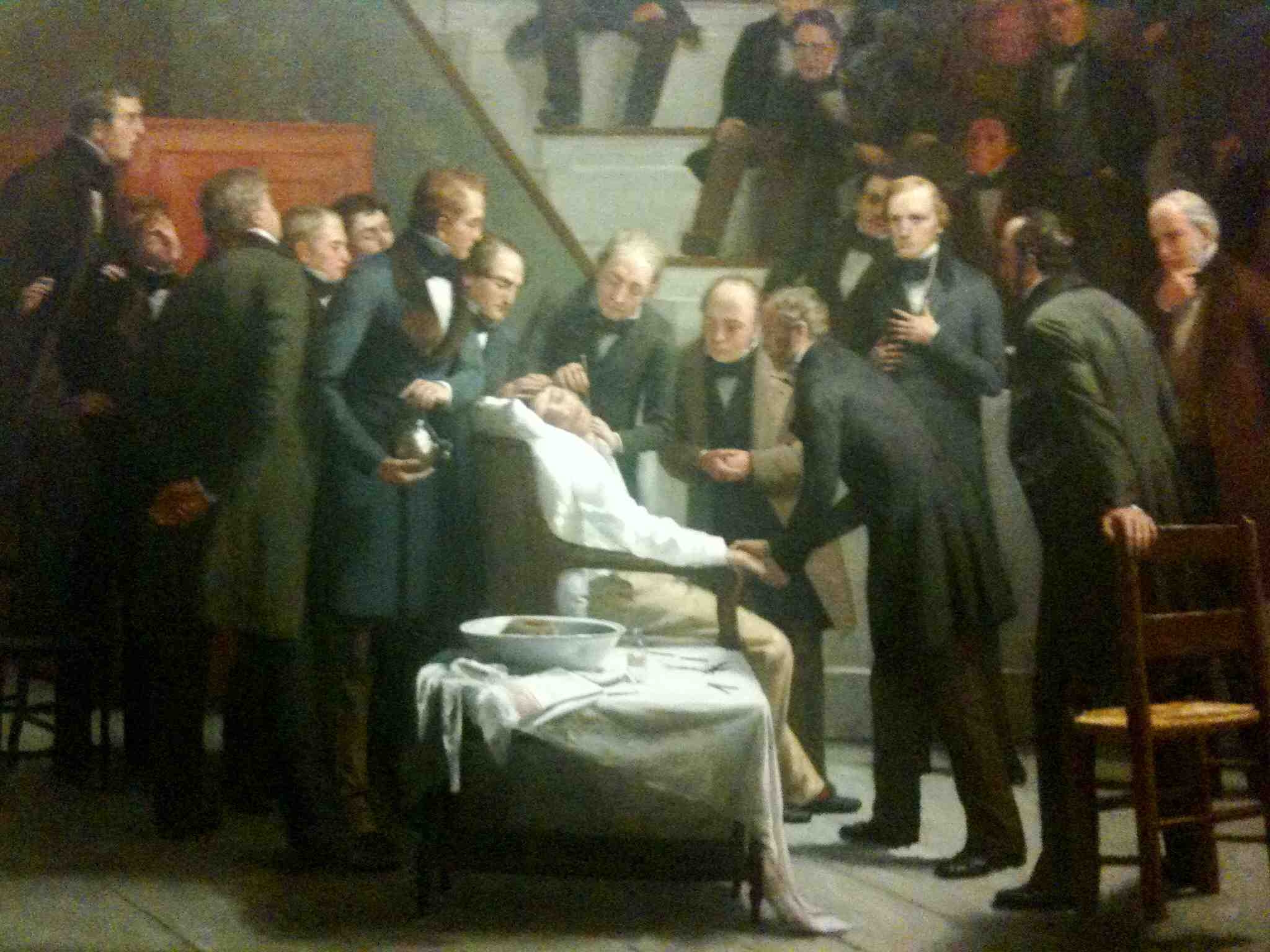
Driving with arthritis pain: Stay comfortable — and safe — behind the wheel

Daily cup of coffee may prevent afib recurrence

Gene-editing therapy lowers harmful blood fats in early study

What is EMDR therapy, and who can it help?

GLP-1 drugs versus bariatric surgery for treating obesity

Two dumbbells, three exercises, and 10 minutes

Easing the emotional burden of IBS

Modify your push-ups to meet your fitness level

What is long QT syndrome?

Stroke survivors may benefit from very low LDL levels
Harvard Health Blog
Read posts from experts at Harvard Health Publishing covering a variety of health topics and perspectives on medical news.
Articles
If pulmonary embolism can strike Serena Williams, it can ace anyone
If someone who stays fit for a living, like tennis star Serena Williams, can develop a blood clot in her lungs, anyone can. Called pulmonary embolism, this potentially deadly condition affects up to 600,000 Americans each year. Knowing the warning signs can help you get treatment right away.
Oscar or not, The King’s Speech teaches about stuttering
The King’s Speech has won almost universal praise for its portrayal of reluctant monarch George VI’s stuttering. Harvard Health Letter editor Peter Wehrwein takes you behind the scenes with Alex Johnson, an expert in speech and stuttering at the MGH Institute of Health Professions in Boston; Caroline Bowen, an Australian speech-language therapist; and a few other scattered sources.
When it comes to fiber, cereal fiber may be your best choice
Cereal fiber–from whole wheat bread, whole wheat pasta, brown rice, barley and other whole grains–seems to offer more protection against heart disease and other chronic conditions than fiber from fruits and vegetables. The benefit isn’t necessarily from the fiber alone, but the natural package of nutrients that comes with the fiber. Processed foods, which are often stripped of their fiber and nutrients and then “fortified” in the manufacturing process, don’t measure up.
Cell phone use stimulates brain activity
An elegant new study showing that a cell phone can stimulate brain activity is certain to heat up the debate about whether or not cell phone use is linked to cancer. It’s an important signal that it’s high time scientists take a harder look at how the energy radiated by a cell phone, a mobile phone, or any other energy-emitting device we hold next to our heads affects the brain.
Zinc for the common cold? Not for me
The latest hubbub about taking zinc to shorten a cold is media hype at its finest. The review that sparked the media storm on zinc and colds says there’s a lot more to be done before recommending taking zinc for the common cold. The negative side effects of zinc are also worth considering.
Feeling S.A.D.? Lighten up if it’s seasonal affective disorder
This picture shows the view from my office window in Boston: dull, dreary, and depressing — at least on overcast days like today. Lack of light is one of the reasons that people feel mentally foggy. One of the bloggers I follow, Rachel Zimmerman of WBUR’s CommonHealth blog, recently wrote that she’s been drinking three […]
End-of-life planning makes it easier to say goodbye
Good investigative reporting may finally debunk the myth that vaccines cause autism
For years now, both individual researchers and respected scientific organizations such as the Institute of Medicine have tried to refute a persistent myth — that childhood vaccines cause autism. The myth began after a small study published in 1998 in the Lancet by Andrew Wakefield and colleagues at Royal Free Hospital and School of Medicine […]
Echinacea for colds
Does echinacea, the popular natural cold remedy, really work? It depends on what you mean by “work.” Results reported in today’s Annals of Internal Medicine found that echinacea may reduce the length of a weeklong cold by 7 to 10 hours and make symptoms a little less onerous. That can’t be characterized as a major effect, so many people may figure that […]
The safety of painkillers
Perhaps as many as one in every 5 American adults will get a prescription for a painkiller this year, and many more will buy over-the-counter medicines without a prescription. These drugs can do wonders—getting rid of pain can seem like a miracle—but sometimes there’s a high price to be paid. Remember the heavily marketed COX-2 inhibitors? Rofecoxib, sold as Vioxx, […]
A Chia Pet for diabetes?
ARCHIVED CONTENT: As a service to our readers, Harvard Health Publishing provides access to our library of archived content. Please note the date each article was posted or last reviewed. No content on this site, regardless of date, should ever be used as a substitute for direct medical advice from your doctor or other qualified […]
New insights into treatment-resistant depression
ARCHIVED CONTENT: As a service to our readers, Harvard Health Publishing provides access to our library of archived content. Please note the date each article was posted or last reviewed. No content on this site, regardless of date, should ever be used as a substitute for direct medical advice from your doctor or other qualified clinician. […]
Vitamin D recommendations
Vitamin D has been talked about as the vitamin — the one that might help fend off everything from cancer to heart disease to autoimmune disorders, if only we were to get enough of it. “Whoa!” is the message from a committee of experts assembled by the Institute of Medicine (IOM) to update recommendations for vitamin D (and for calcium). […]
Laugh and be thankful—it’s good for the heart
One of the things I like most about Thanksgiving is the laughter around the dinner table. The food is great, make no mistake. But it’s the sounds of happiness—the high peal, the good-natured guffaw, the snort-and-shaking-shoulders, and the deep belly laugh—that really make me give thanks. Laughter isn’t just a way to stay connected with […]
This week from HHP: Health apps, office noise, and hemorrhoid cream for the eyes?
As usual, Harvard Health Publishing’ writers and editors have been busy covering a range of health topics. Here is a small sampling. To read more, visit us at www.health.harvard.edu. Health apps. Smart phones like the iPhone and Android aren’t just phones. They are also pocket-sized computers capable of running sophisticated applications, or apps. Hundreds of […]
Using the relaxation response to reduce stress
ARCHIVED CONTENT: As a service to our readers, Harvard Health Publishing provides access to our library of archived content. Please note the date each article was posted or last reviewed. No content on this site, regardless of date, should ever be used as a substitute for direct medical advice from your doctor or other qualified […]
Screening for lung cancer with CT scans
Lung cancer is usually discovered late when it’s difficult to treat and has often spread outside the lung. A reliable screening test to find it at an earlier, more treatable stage would be a legitimate breakthrough—and could potentially save thousands of lives. About 160,000 Americans die each year from lung cancer, which is more than who die from breast, prostate, and […]
Explosion in diabetes isn’t inevitable
You can fight diabetes, one step at a time. An alarming new report from the Centers for Disease Control and Prevention estimates that one in three Americans could have diabetes by the year 2050. The number is “just” one in ten now, and its price tag of nearly $200 billion per year is already straining […]
Halloween candy
Trick or treat? It’s really a rhetorical question. They just want the Halloween candy. Millions of American children will get billions of sugar- and fat-laden treats on Sunday night in a tradition that has its roots in pagan and Christian rituals. It’s fun. The kids are outside, walking. And, gosh, they’re cute in their princess and pirate costumes. But nutritionally and dentally speaking, the […]
Painkillers and drug addiction: An ongoing dilemma
On October 16, 1846, Dr. John Collins Warren, a renowned surgeon at Massachusetts General Hospital, removed a tumor from a printer named Gilbert Abbott. The operation was noteworthy for one reason: Abbott did not scream out in pain, as virtually every surgical patient did in those days. The age of anesthesia was born. A Boston […]

Driving with arthritis pain: Stay comfortable — and safe — behind the wheel

Daily cup of coffee may prevent afib recurrence

Gene-editing therapy lowers harmful blood fats in early study

What is EMDR therapy, and who can it help?

GLP-1 drugs versus bariatric surgery for treating obesity

Two dumbbells, three exercises, and 10 minutes

Easing the emotional burden of IBS

Modify your push-ups to meet your fitness level

What is long QT syndrome?

Stroke survivors may benefit from very low LDL levels
Free Healthbeat Signup
Get the latest in health news delivered to your inbox!
Sign Up












